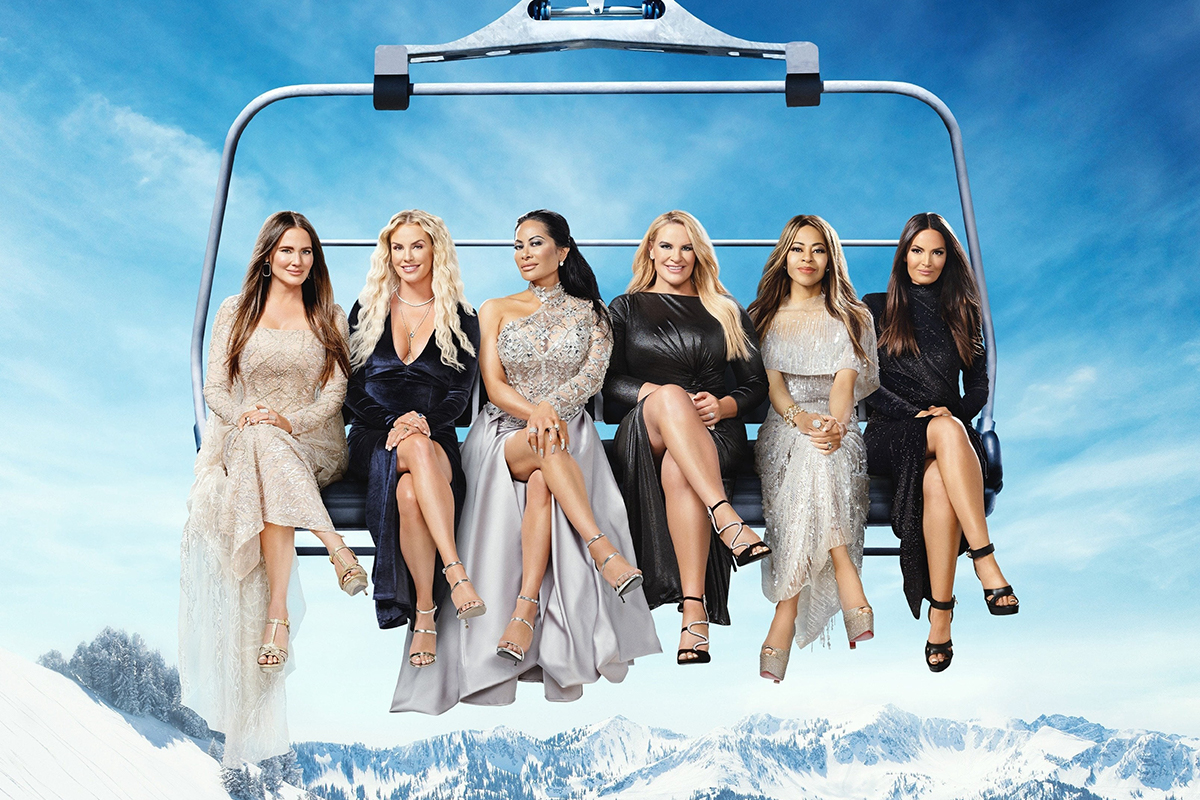In 1847, members of the Church of Jesus Christ of Latter-Day Saints settled in what is now Salt Lake City, Utah. Their arrival ended up establishing one of the world’s largest Mormon strongholds, a city that’s known today for its powdery ski slopes and employing “more plastic surgeons per capita than Los Angeles” (often attributed to Mormon women’s predilection for perfection).
This serves as the backdrop for the latest Bravo Housewives franchise, The Real Housewives of Salt Lake City, in which no episode goes by without a critique of Mormonism. But what makes RHOSLC, which debuted on November 11, most unique is its focus on religion in general. As Meredith Marks, one of the series’ two born-Jewish cast members, told the Chicago Tribune, “I think that we are definitively the most religiously diverse cast that there ever has been on ‘Housewives.’”
Of the six “housewives” in the show, only two currently identify as Mormon — one who’s questioning her religious beliefs, Heather Gay, and the other a “Jew by heritage” who converted to Mormonism with her family as a child, Lisa Barlow. Another, Mary Cosby, is the First Lady of her Pentecostal church, Jen Shah is Muslim (having converted from Mormonism after her Black husband pointed out its racist legacy), Whitney Rose is an ex-Mormon who left the Church after her divorce, and Meredith is a Jewish Chicago transplant.
The fact that viewers know the religion of every woman on the show begs the question: What are cast members from non-Mormon religious backgrounds expected to contribute in a Salt Lake City series? And how will a show known for making caricatures of its couture-covered, Botox-ed cast members represent a Jewish “housewife” in SLC?
As with every Housewives franchise, the extent to which the women all knew each other before shooting is unclear, but Meredith and Lisa seem to genuinely go back (in one episode, Lisa references having helped plan one of Meredith’s child’s bat mitzvah). Seth, Meredith’s husband, coined the term “Mormon 2.0” to refer to Lisa, a phrase she returns to regularly to explain how a practicing Mormon (for whom sobriety should be an important tenet) can own a tequila company.
That bat mitzvah reference — and Meredith and Lisa’s Fran Drescher-esque laugh — is the furthest the series veers into Judaism, which makes sense based on Meredith’s approach to religion. In an interview with the Chicago Tribune, Meredith says she’s “very proud to be Jewish,” but she’s more interested in the heritage and the history than the religious aspects. Meredith considers Judaism her “race,” and happily attends a sermon at Mary’s church out of interest in the latter’s faith.
Throughout the show’s first five episodes, religious drama mostly plays out among the Mormons and ex-Mormons. But it pales in comparison to the drama that takes place between the cast’s two women of color, Jen and Mary, which peaks (so far) at a “Met Gala” themed luncheon hosted by Mary, where men dressed in beefeater costumes greet the women as they arrive in various interpretations of the bewildering theme. During the lunch, Mary, who is Black, calls Jen, who is of Tongan and Hawaiian descent, “ghetto” and a “hoodlum.” Jen also reveals past remarks by Mary that she deems racist.
By this time, Meredith’s role on the show seems to have been cemented as the neutral and dignified friend. She’s even accused of being a “Switzerland” in the ongoing fight between Jen and Mary, for which Jen gets angry; she thinks Meredith should choose a side.
She has a point. After all, while Switzerland was supposedly neutral during World War II, it had significant financial ties to Nazi Germany. “White silence is violence,” and for Meredith to attribute the importance of Judaism in her life to its “history,” which consists of hundreds of years of oppression, she may be a little bit too comfortable as a silent bystander to a racist exchange.
The fact that RHOSLC has offered maybe the most diverse cast of any Housewives franchise to date, while others scramble to cast their first Black member, means it was done on purpose. Jen, for one, says she wanted to join the series partly to show viewers that Salt Lake City isn’t only “Caucasian, blond-haired, blue-eyed women.”
Meredith has a less purposeful tale behind her casting as another non-blond in the franchise. A friend contacted her a couple years ago about a potential reality TV series in Utah, and after some debate, she decided to go for it. Through the series, Meredith, a celebrity-favored jewelry designer, figured she could “inspire and help other people and of course, grow my business and everything else,” she told the Chicago Tribune.
In the year of our lord 2020, nothing can avoid making a political statement. The RHOSLC, with a diverse cast made even more obvious against its Mormon majority backdrop, is no exception. For the representing Jew in a religiously diverse cast to quickly earn the label “Switzerland,” therefore, is a more loaded statement than the term’s apparent neutrality may initially make it seem.
While the show has all the hallmarks of a good Housewives franchise (fashion, drama, stripper poles!), by putting questions of religion and race at the forefront — whether or not it explicitly means to — it’s showing viewers that not even reality TV is an escape from reality.



